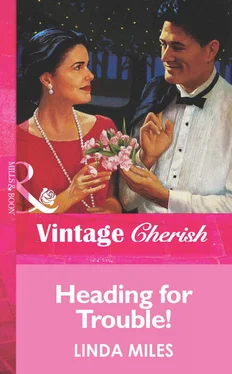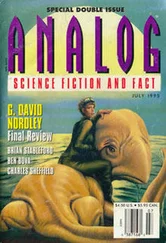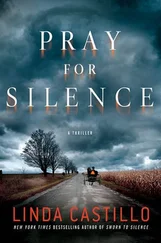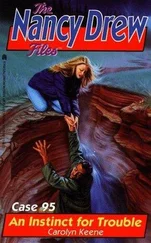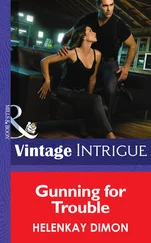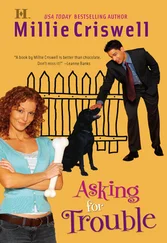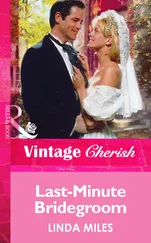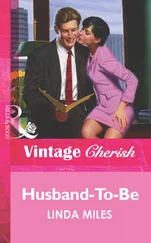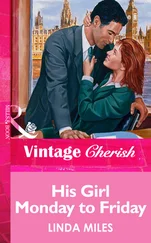Presently she sensed that he had looked away, and in spite of herself she found her eyes drawn slowly back down the table. Sure enough, the hawk-like face was now turned to Elaine. And now that she was no longer the centre of attention she had the opportunity to observe him at leisure.
Even after more than a year she remembered well enough the contrast between the television image and the real thing. The physical toughness of the man, which you wouldn’t have guessed from the talking head, made it easier to understand how he had talked his way into and out of a series of guerrilla hide-outs for an early, notorious season of Firing Line. So, oddly enough, did a charisma so strong that it was almost palpable. She could imagine him impressing men who lived by a code of unrelenting machismo—and then charming the socks off them.
What she hadn’t remembered, because she hadn’t previously had a chance to see it, was his rather terrifying talent for being at ease with just about every subject under the sun. Here he was, talking, unbriefed, on subjects that Elaine had presumably worked up—and still he had her on the hop.
But even as Morgan admitted, grudgingly, that he probably had the most powerful mind of anyone she’d ever met, even as she laughed, reluctantly, at his irreverent wit at the expense of the world’s movers and shakers she found herself gritting her teeth.
Again and again he deployed the same tactic, putting forward a controversial, even shocking suggestion ‘for the sake of argument’, and then leaving Elaine to struggle to show why it was wrong. When watching this move on television Morgan usually shouted at the screen. Now, while her sister fought off humiliation at the hands of a man she seemed to care about personally as well as professionally, Morgan was forced to keep a low profile, to open her mouth only to put peas into it.
While she managed to keep quiet, however, it didn’t occur to her to school her face to an air of pleasant interest, and it gradually settled into a stormy expression strangely at odds with the harem-like make-up. Kavanagh glanced her way from time to time with a rather odd smile, and once or twice tried to draw her into the discussion; each time she made a noncommittal remark, her eyes still hurling defiance, and refused to be drawn.
But at last it was too much to bear. He had been talking with chilling satisfaction about a prominent local politician whose corruption had been exposed by Firing Line, and who was now serving time in a low-security prison. Morgan glared at him.
His eye caught hers for a long moment. ‘But you seem to disapprove?’ An eyebrow flickered upwards; a lazy smile mocked her for daring to disagree.
‘I thought it was absolutely appalling, the way you took Corvin to pieces,’ she said, goaded. ‘Why did you have to keep needling him about his sixties idealism? He looked absolutely heartbroken by the end of the programme. What possible good did it do?’
He gave a faint, indifferent shrug. ‘He got the post in the first place because he persuaded people that he’d be an improvement on the back-scratching lot who’d been running it for twenty years. It seemed fair enough to bring that up if he’d turned into something as bad as what he was meant to replace.’
This was as good as a red flag to a bull. Morgan forgot her promise to be tactful and discreet and behave like a civilised adult; how dared he pretend that he only brought up legitimate points, when he really just played to the crowd? Infuriated, she sailed in with a comprehensive list of every disgraceful bit of showmanship she could remember.
‘And what about Cy Burgess?’ she concluded. ‘Or Everard Macready? What about the time you read out letters that union leader—what was his name? Mick Bryson?—had written to the wife of the owner of FairWay? Was that necessary? I suppose you thought it was absolutely marvellous when he actually passed out on stage.’
The electric grey eyes widened as she went on, and by the time she had finished his clever, mobile face showed an odd mixture of emotions—surprise, amusement, perhaps a touch of respect, but above all a maddening self-satisfaction. Remorse, it seemed, was conspicuous by its absence.
‘Morgan,’ he said at last, ‘as far as I can see you’ve caught just about every broadcast of the programme for the last three years—and that despite loathing everything about the way I go about things.’
He cocked an eyebrow. ‘I hate to say this, but as far as I’m concerned that means I must be doing something right. For better or worse, that’s what television’s about—not just covering worthy issues, but getting people to watch you week after week after week.’ His mouth curled into a rather cynical smile. ‘Whatever you say about my methods, if you keep watching I must be doing a pretty good job.’
‘But don’t you personally have any opinion of whether it’s right to treat people that way?’ Morgan demanded. ‘What do you do—give them all an apology and a pat on the back afterwards—no hard feelings, it was just business? That may be good enough for the Godfather, but don’t you think you should come up with something better if you’re going to take the moral high ground?’
He began to look slightly annoyed. ‘I try to make sure of my facts; assuming I’ve got those right, I don’t think what I say calls for apology. That doesn’t mean I have a licence to insult people at will; if I get hold of the wrong end of the stick, of course I offer a retraction.’
Morgan scowled.
‘For God’s sake, you can’t seriously think I do it for the sheer fun of being rude to people?’ His voice roughened with impatience.
‘Of course you enjoy it!’ Morgan retorted. ‘You love twisting the knife—and some people love to watch you do it, though why I can’t imagine. It may be good TV, but don’t you ever wonder whether the kind of spectacle you provide limits the stories you can cover? No—because you revel in hacking people apart.’
There was a stunned silence around the table. Mr and Mrs Roberts looked shocked, the children thrilled, Elaine gallantly cheerful, as if one of her morning TV guests had passed out in a drunken stupor. Only Richard Kavanagh seemed unfazed. If anything, he looked more animated than he had all evening. The queer light eyes positively blazed under the black brows, and a smile tugged at his mouth.
‘I like to think my weapon is the rapier,’ he murmured. And then, with an apparent shift of ground, he added, ‘But I’m quite capable of taking an interest in subjects and people where there’s not a hint of wrongdoing.’
He smiled. ‘Look, sterling probity may not make for very interesting TV, but that’s not to say it doesn’t exist, or that I’m incapable of appreciating it when I find it—you may not have noticed, but just at the moment I’m not actually on the air.’ And then, while Morgan tried to think of a polite way of saying, Tell that to the Marines, he slid his blade home.
‘So why don’t you tell me a bit more about your work with the poor little homeless children with no school of their own?’ The amusement in his voice invited her to share the joke, but this home thrust stopped Morgan in her tracks.
‘I’d be happy to,’ she lied. ‘When we’ve more time.’
‘It’s so nice to have the chance to meet fans face to face,’ he said lazily, ‘and find out what they really think.’ The fist inside the velvet glove, thought Morgan; he was threatening to let Elaine know what she’d been up to. But her scrape of this afternoon paled to insignificance beside the mess she’d be in if he remembered where he’d seen her before, or, for that matter, decided to take a real interest in the charity.
‘I didn’t think you had much time for your fans,’ she replied coolly. ‘After all, I don’t suppose you care for being treated as somebody’s personal property.’ She met his eyes squarely, daring him to take up the gauntlet.
Читать дальше
